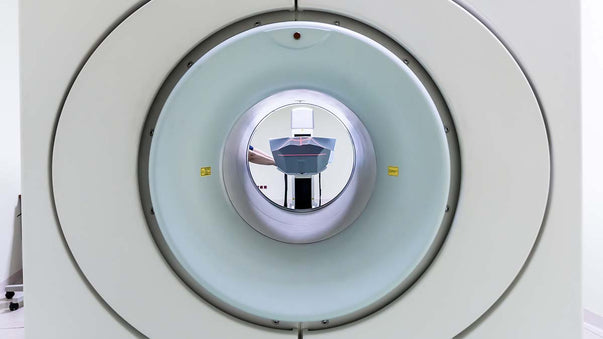RNA Editing Treats Deadly Genetic Disease in Mice

Bioengineers, led by UC San Diego, have shown that a new RNA editing technology can treat laboratory mice affected by Hurler syndrome. It's a rare genetic disease. The new technology can correct the disease-causing mutation in RNA. And it shows promise as a gene therapy for treating genetic diseases more generally.
"We can simply deliver just a small piece of RNA inside the cell and repair mutations in vivo,” said bioengineering professor Prashant Mali in a press release issued by UC San Diego.
RNA (RiboNucleic Acid) is a nucleic acid like DNA. A difference is that RNA is found in nature as a single strand folded onto itself, rather than a paired double strand like DNA. Nucleic acids are large molecules essential for all known forms of life.
The findings are described in a research paper published in Nature Biotechnology. They could make it much simpler to repair disease-causing mutations in RNA, without compromising precision or efficiency.
The innovative aspect of the new RNA editing technology is that it makes efficient use of RNA editing enzymes that naturally occur in the body's cells. These enzymes are called adenosine deaminases acting on RNA (ADARs).
Until now, external ADARs had to be brought into a cell for targeted RNA editing. That made ADAR-based RNA editing complicated. But the bioengineers led by Mali have found ways to recruit a cell’s own ADARs to make edits at a precisely-targeted RNA region.
As a proof of concept the bioengineers experimented with the new RNA editing technology on laboratory mice. Their aim was to correct a single mutation that causes Hurler syndrome. The mutation prevents the body from producing an enzyme that is necessary for breaking down complex sugars. Buildup of these sugars causes severe tissue damage, skeletal abnormalities, cognitive impairment, and other serious health problems.
The bioengineers obtained encouraging results. After two weeks, the levels of mutant RNA and complex sugars in the diseased animals were significantly reduced.
In conclusion, according to the bioengineers, the findings suggest that the new RNA editing technology could enable efficient programmable RNA editing in vivo. And it could be used for diverse protein modulation and gene therapeutic applications.
"I'm hopeful that this work opens the door even more for RNA editing as another gene therapy tool," concluded Mali. At the same time, he cautioned that the research is still at an early stage, "and it remains to be seen how this RNA editing technology will work in primates."
A new biotechnology company called Shape Therapeutics was co-founded by Mali. The company is working to bring RNA editing technologies to the clinic.
More Articles
Don't miss a beat! In our Pulse Newsletter, Thrivous curates the most important news on health science and human enhancement, so you can stay informed without wasting time on hype and trivia. It's part of the free Thrivous newsletter. Subscribe now to receive email about human enhancement, nootropics, and geroprotectors, as well as company news and deals.
Read more articles at Thrivous, the human enhancement company. You can browse recent articles in Thrivous Views. See other Pulse Newsletter articles. Or check out an article below.
-
Programmable Protein Circuits Between Living Cells
Synthetic biologists at Stanford University, Howard Hughes Medical Institute, and Caltech have developed a new technology for protein circuits between ...
-
Experimental MRI Treatment for Cancer
Scientists at University College London have developed a new cancer therapy. It uses an MRI scanner to guide a magnetic ...


